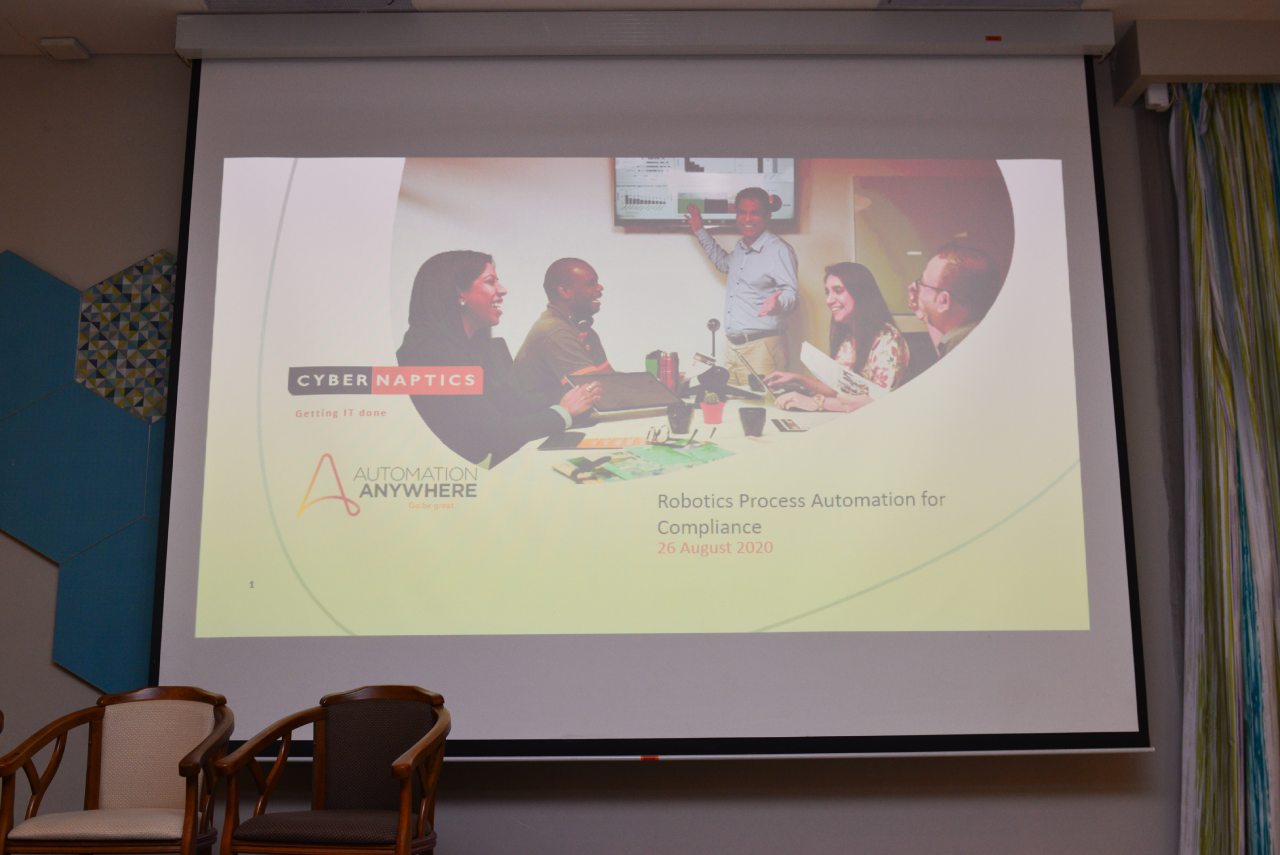Tell us about Automation Anywhere.
Automation Anywhere, a Robotic Process Automation (RPA) global market leader, empowers customers to automate end-to-end business processes with software robots that perform repetitive and manual tasks, resulting in dramatic productivity gains and business resiliency with less than a one-year payback, on average. The company offers the industry’s only cloud-native and web-based intelligent automation platform combining RPA, artificial intelligence, machine learning and analytics right out of the box, to help organizations rapidly start and scale their process automation journey. Its Bot Store is the world’s first and largest marketplace with more than 950 pre-built, intelligent automation solutions. With a global network of 1,900 partners, Automation Anywhere has deployed over 2.1 million bots in more than 90 countries to support the world’s largest enterprises, governments, and SMBs, including 85% of the top banks and financial services companies, 90% of the top healthcare companies, 85% of the top technology companies, and 80% of the top telecom companies. For additional information, visit www.automationanywhere.com.
How can RPA help operators in the financial services industry?
Apart from its obvious benefits of automating repetitive tasks within the financial services industry, RPA is also known as a ‘compliance enabler’. Effective implementation of RPA can help with the monitoring and testing of complex systems to check if they are compliant with laws and regulations. However, it can also aggregate data from many sources and speed up the compilation and sorting of financial information. This helps compliance readiness by also maintaining a detailed activity log for audit purposes. Many teams working in risk assessment, complaints management, and investigatory services are reaping the benefits of RPA. Not only are they able to perform routine tasks in a faster manner, it also help drive down costs significantly. With further breakthroughs coming up in cognitive automation, AI, machine learning and more, many complicated compliance and regulatory tasks can also be automated. This will boost quality and customer experience, which are the two pillars of the financial services industry.
What are your expertise and achievements in terms of helping companies around the world achieve compliance?
Our clients across the globe operate in diverse industries, and we have tried and tested compliance models that enable them to achieve efficiency. By automating compliance processes, and even by boosting overall compliance through automating tertiary processes, we have set the ball rolling. Compliance teams have different regulatory requirements and obligations to fulfill, so they need all the help they can get to conduct their jobs efficiently. RPA and automation play a critical role here, as compliance teams are almost always understaffed as well. RPA can fill vacant roles in the team and help compliance officers achieve their objectives. We help enterprises achieve the level of confidence in compliance that they have been looking for by reducing the dependence on external lawyers or legal counsel. RPA helps with legislative requirements and provides updated content for all parties. Our software and platforms are built with this transparency in mind and streamline compliance processes within enterprises.
How has RPA disrupted banking and financial services?
Emerging technologies always play a significant role in all industries, and the banking and finance industry has never shied away from implementing new technologies. It has adopted RPA at an early stage and is one of the leading examples of the benefits that RPA delivers. RPA, and more recently – AI, have changed banking and finance in many ways. It has fine-tuned the concept of personalized banking by aggregating and sharing relevant data at critical decision moments. It has made possible the scalability of 24/7 customer service which was a vision for many service providers for decades. It has delivered a cost-effectiveness strategy and countless opportunities to up-sell products and services like never before. And lastly, it has made it possible for workers and employees in the industry to focus on more creative and value-added work. These workers are now able to upskill themselves and focus on tasks they could never do before. This has boosted their employability, self-confidence, and their aptitude. Direct and indirect benefits of RPA in the industry are driving long-term changes. All leading banks and financial service providers are now turning to RPA – basic and advanced RPA – to boost their services and improve customer satisfaction. There is no further proof needed that the disruption led by RPA has been a resounding success.
Why is it important for Automation Anywhere to be present in Mauritius?
Mauritius is marked as the gateway of investment into Africa. The astounding economic growth of the country has drawn in investments from across the globe. Mauritius is ranked high in terms of economic competitiveness, a friendly investment climate, and good governance and it is a free economy. Financial services contribute a large share of the growth of the country’s economy. However, there is still huge potential for automation to power up business processes to increase time to delivery and allow individuals who are working on repetitive and mundane procedures to work on human-led insight-driven activities. Automation can also enhance the quality of work being delivered across the other key sectors in Mauritius such as tourism, information and communications technology, and transport. The country has come a long way in its 52-year post-independence journey. Gone are the days when it would be solely dependent on sugarcane exports for its economy. Mauritius now can be a leader in the space of RPA in the evolving financial services domain in the African continent. Its strategic location and emerging economic status make it the perfect location for the implementation of automation in the region.


